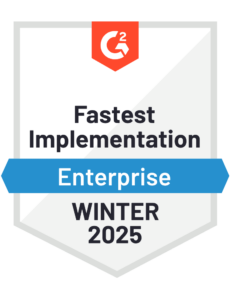Upskilling Accounting Employees for AI Usage
Blog post
Share
As artificial intelligence (AI) continues to revolutionize various industries, accounting and finance teams are cautiously integrating AI to enhance efficiency in their most time-consuming processes. While the benefits are substantial, it’s imperative to address key concerns such as data security, compliance and regulatory issues, and algorithmic bias. Fortunately, accountants already possess many of the essential skills required to ensure responsible and effective AI utilization.
AI Readiness vs. Risk
A recent CFO Dive article highlighted that 38% of Chief Financial Officers (CFOs) remain undecided about AI’s cost versus risk. This statistic underscores the importance of preparing accounting teams to navigate the complexities of AI adoption. While the potential benefits of AI are immense, including increased efficiency and enhanced decision-making, the risks, such as data security and integrity, cannot be ignored. One thing that should assuage accounting and finance leaders’ concerns is the fact that by practice, most accountants are already trained with the skills needed to provide proper oversight while using AI.
Accountants’ Attitudes Towards AI
It will come as no surprise to hear that accountants’ attitude about AI usage varies significantly based on their age/generation. According to a McKinsey report, younger employees (Millennials and Gen Z) are generally more optimistic about AI, with a significant majority eager to gain AI skills. In contrast, older generations (Baby Boomers and Gen X) may exhibit more apprehension, requiring additional support and reassurance. Understanding the attitudes of different generations towards AI is crucial for tailoring training programs for your teams.
The Foundation of AI Readiness: Data Cleanliness
One of the foundational steps in preparing for AI integration is ensuring data cleanliness. Clean, well-structured data is essential for AI systems to function correctly and provide accurate insights. As the saying goes, “garbage in, garbage out.” Ensuring data quality requires an all-in approach. CFOs must act as data stewards to ensure any data fed to AI systems is accessible, accurate and secure for use throughout the organization. Everyone else must understand the role they play in ensuring data integrity. By focusing on data cleanliness, accounting teams can lay a solid foundation for successful AI implementation.
Leveraging Existing Accountant Competencies
CFOs who are looking for a realistic starting point to develop AI skills can look to their team’s existing AI-adjacent competencies. By training and practice, accountants have strong skills in data literacy, a knack for statistics, and data visualization. At the same time, not every accountant wants to learn code or feel like they need to build a new skillset. The key to striking a balance lies in applying the accounting team’s core competencies to a different part of the business, so that no one is starting at zero.
Accountants’ AI-adjacent skillsets:
• Data Literacy: Proficiency in interpreting and analyzing data enables accountants to understand AI outputs and make informed decisions.
• Data Interpretation: A strong grasp of statistics aids in comprehending AI algorithms and assessing their validity.
• Data Visualization: The ability to present data insights visually complements AI’s role in identifying patterns and trends.
These skills not only facilitate the adoption of AI but also empower accountants to address specific AI concerns, particularly data bias.
Countering Data Bias with Accountants’ Skills
Data bias in AI can lead to skewed results, potentially impacting financial decisions.
Thankfully, accountants are trained to recognize data anomalies, the first step in identifying bias. By applying rigorous data validation techniques and maintaining a critical perspective, accountants can ensure that AI outputs are fair, accurate, and free from unintended bias.
Still, additional training is recommended based on your organization’s policies and industry regulatory requirements. And that’s not a bad thing. Upskilling your accounting employees for AI usage is essential to successfully deploying AI and automation and moreover, advancing their careers by enabling them to progress overall business objectives. Training programs focused on data analysis, technology adoption, and strategic thinking can empower accounting professionals to adapt to new roles and emerging responsibilities.
Financial Data Security & AI
One of the top priorities and concerns for CFOs, relating to AI or not, is data security. Given they’ve always got one eye on this topic, it’s essential to ensure any approved AI is secure. How do you do this? Opt for closed AI models instead of open AI models. ChatGPT, the most widely used AI platform today, is owned by OpenAI—with “open” in the name, users should know that this platform does not guarantee the type of data security most accounting and finance groups require. Closed models, like Trintech’s GenAI assistant, offers single-tenant AI, ensuring your data remains within our secure system and is only maintained for the duration of the task.
Conclusion
As AI becomes increasingly integrated into accounting and finance, upskilling employees to harness these tools responsibly is essential. Thankfully, this should not be foreign territory for trained accounting and finance pros. By building upon existing competencies in data literacy, statistical analysis, and data visualization, accounting professionals can effectively manage AI’s benefits while mitigating associated risks. Embracing AI with a focus on data cleanliness and bias mitigation will position accounting teams to enhance efficiency and maintain the integrity of their financial processes.
Written by: Lindsay Rose






